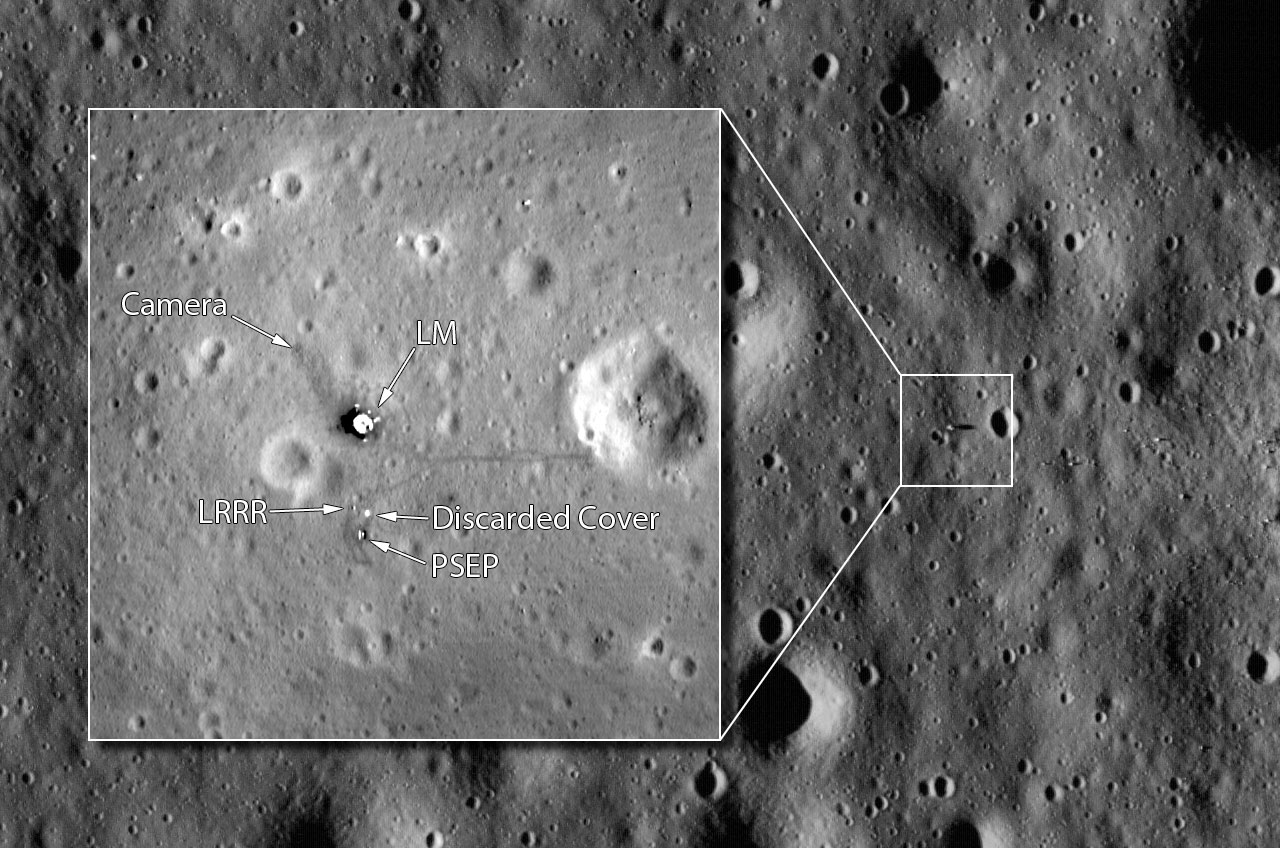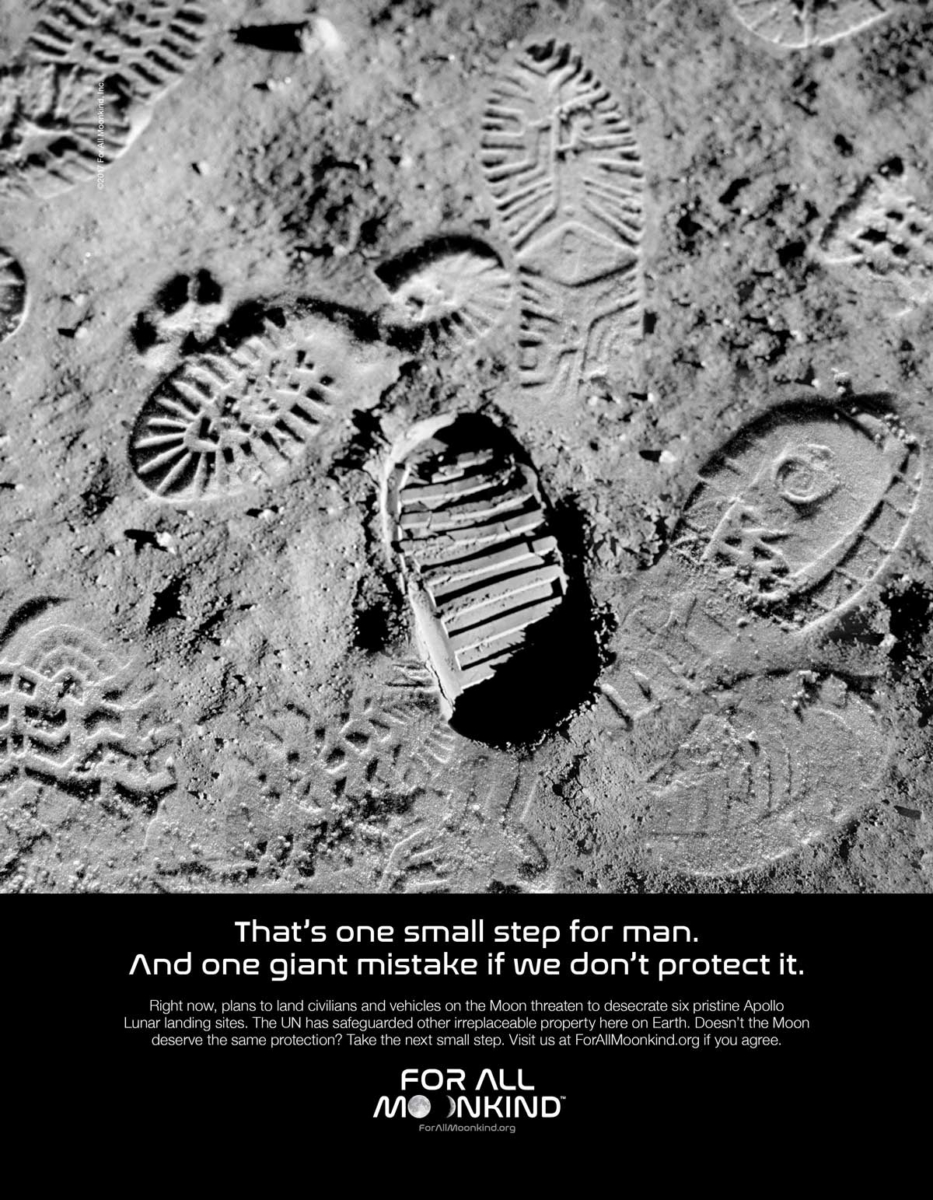
Space Act Calls for Protection of Apollo 11 Landing Site
It's called the One Small Step to Protect Human Heritage in Space Act.

Senators Gary Peters (D-Mich.) and Ted Cruz (R-Tex.) have introduced a bill — the One Small Step to Protect Human Heritage in Space Act — that seeks to preserve and protect the historic Apollo 11 landing site.
The bill notes that the lunar landing sites of the Apollo 11 spacecraft, the robotic spacecraft that preceded the Apollo 11 mission, and the piloted and robotic spacecraft that followed "are of outstanding universal value to humanity."
The Act explains that such landing sites: are the first archaeological locales with human activity that are not on Earth; provide evidence of the first achievements of humankind in the realm of space travel and exploration; and contain artifacts and other evidence of human exploration activities that remain a potential source of cultural, historical, archaeological, anthropological, scientific and engineering knowledge.
"As commercial enterprises and more countries acquire the ability to land on the moon," the bill notes, "it is necessary to ensure the recognition and protection of the Apollo 11 landing site and other historic landing sites together with all the human effort and innovation the sites represent."
Related: Apollo 11 at 50: A Complete Guide to the Historic Moon Landing Mission
Common human heritage
"We were honored to work with Senator Peters' office on this legislation," said Michelle Hanlon, co-founder of For All Moonkind, a group that seeks to protect each of the six human lunar landing sites, as well as other space locales, as part of our common human heritage.
"When we first met in March, it was clear that the Senator and his staff share our passion for the preservation of human history in space," Hanlon told Inside Outer Space. "They knew how important it was to get it right, and they recognized the need to develop a bill that would not violate international law by claiming any sort of possession or ownership of the historic lunar landing sites."
Get the Space.com Newsletter
Breaking space news, the latest updates on rocket launches, skywatching events and more!

Sustainable exploration
The bill is indeed a small step, Hanlon adds, but an incredibly significant one.
"Senator Peters and Senator Cruz are asking the U.S. to take the lead in assuring that we explore space sustainably with respect for history, Hanlon said. "We hope that the entire Senate will agree that it's time to take this one small step and help nudge an important international conversation on protection of human heritage in space."
The bill was introduced on May 23. You can read it here.
- Lunar Legacy: 45 Apollo Moon Mission Photos
- Apollo Quiz: Test Your Moon Landing Memory
- Who Owns the Moon? | Space Law & Outer Space Treaties
Leonard David wrote the book "Moon Rush: The New Space Race," which was published last month by National Geographic. A longtime writer for Space.com, David has been reporting on the space industry for more than five decades. Follow us on Twitter @Spacedotcom or Facebook.
Join our Space Forums to keep talking space on the latest missions, night sky and more! And if you have a news tip, correction or comment, let us know at: community@space.com.

Leonard David is an award-winning space journalist who has been reporting on space activities for more than 50 years. Currently writing as Space.com's Space Insider Columnist among his other projects, Leonard has authored numerous books on space exploration, Mars missions and more, with his latest being "Moon Rush: The New Space Race" published in 2019 by National Geographic. He also wrote "Mars: Our Future on the Red Planet" released in 2016 by National Geographic. Leonard has served as a correspondent for SpaceNews, Scientific American and Aerospace America for the AIAA. He has received many awards, including the first Ordway Award for Sustained Excellence in Spaceflight History in 2015 at the AAS Wernher von Braun Memorial Symposium. You can find out Leonard's latest project at his website and on Twitter.









